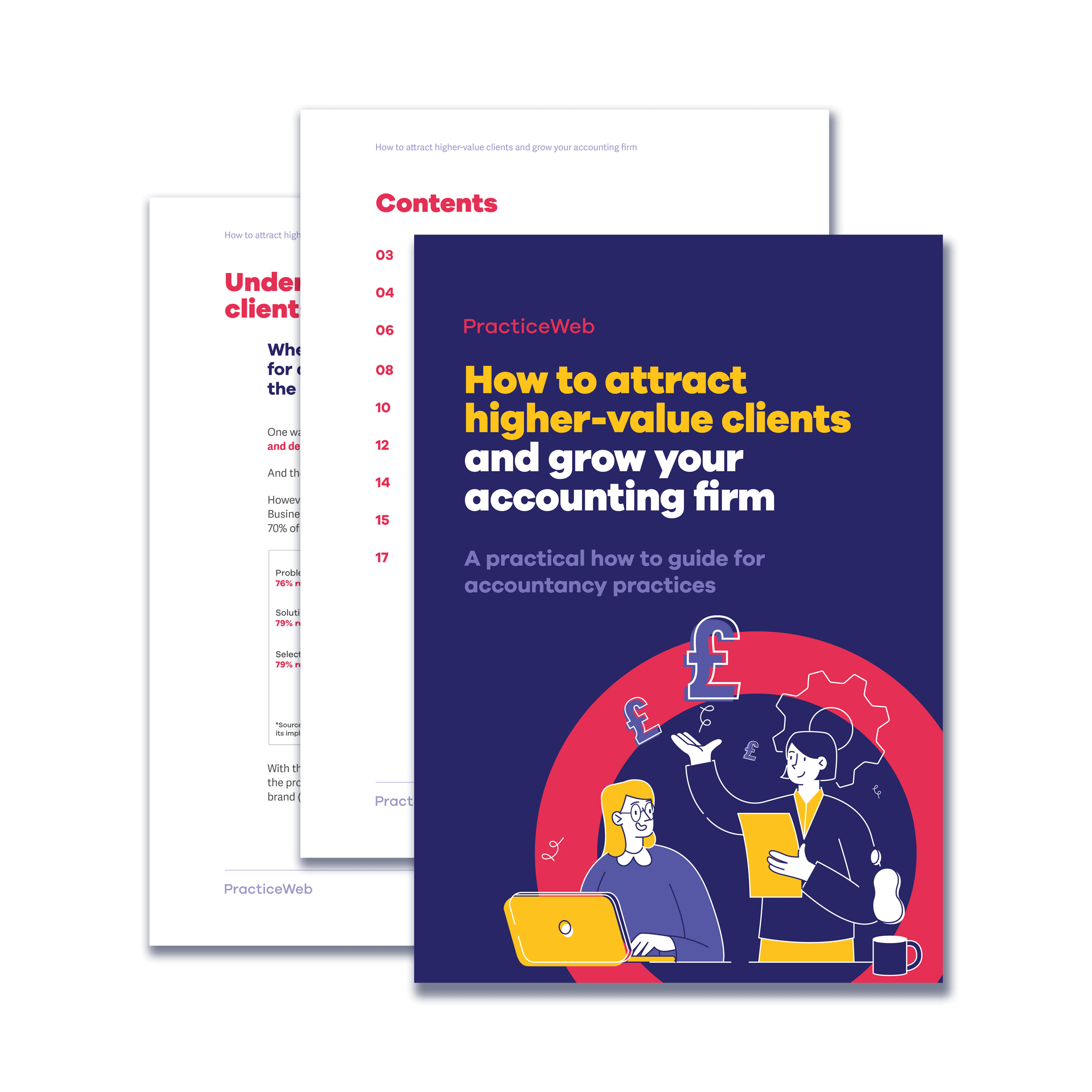Small business owners can and do benefit from the expert advice their accountants give them. Many are still unaware of the value of this guidance – but the right messaging from accountants can help.
Our most recent research report, ‘What’s stopping your accounting firm connecting with the right clients?’, revealed that more than three quarters (76%) of SMEs already see their accountant as a business adviser, and 68% see them as a business mentor.
We know from previous research, however, that SMEs tend not to place a high value on those advisory services. If accountants are already giving valuable advice and mentorship, but business owners aren’t willing to pay, it suggests those services are being provided informally, at a low cost or for free.
What’s missing in many cases is the right narrative around those services. That means showing clearly what exactly your service includes, connecting it with the problems your clients are facing, and positioning yourself as an expert they can trust to solve them. In other words, you’re showing how your firm fits in with your clients’ story, and how you’re going to make their lives easier.
In our research report, you can read more about SME attitudes to advisory services alongside several other areas including businesses’ top challenges, digital adoption and what they look for in an accountant. For now, though, let’s dig into the advisory topic a bit more.
Defining your advisory service
To get a better understanding of what ‘advice’ as an accountancy service means to SMEs, we asked which areas they would expect to be covered as part of an accountant’s advisory service.
Business planning was at the top of the list, with 51% saying they thought this would be included, followed by 49% for both financial forecasting and business strategy.
On the other hand, fewer people expected an accountant’s advisory service to involve ‘support with systems and processes’ (35%) and ‘support with technology’ (30%).
Depending on your firm’s specific expertise, and the needs of your clients, you might mention some or all of these things when you describe your advisory service. Either way, make sure you start with a value-led proposition to ensure what you’re offering matches up with the benefits those clients will find most valuable.
Download the Report:What's stopping your accounting firm connecting with the right clients?
Learn what SMEs want from their accountant in the future, what their biggest challenges are, and what practical steps you can take to connect with them.
Describing your advisory service
When we interviewed business owners in one-on-one sessions, they also seemed puzzled by the nature of accountants’ advisory services – what kind of advice did we mean? Should their accountant really be telling them how to run their own business?
The consensus among the business owners we spoke to was that if they were to seek strategic advice, they would want it to be from someone who knows their sector, understands their needs, and has experience of running a business.
The reality is, if you’re running an accountancy firm, you already do have experience of running a business. Besides, many firm partners have industry experience outside of accountancy alone.
The problem for some interviewees seemed to be that their accountant was slightly removed from the reality of their situation – that they looked at things in a distinctly accountancy-focused way, rather than from the business owner’s point of view.
There are two main ways you can change the narrative: by demonstrating your experience as an expert in your niche, and by connecting with your target clients and building trust.
For in-depth insights and practical tips on connecting with your ideal clients, download our newest research report.





